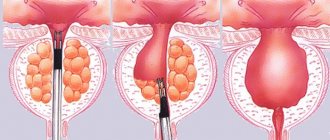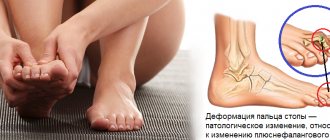Pain when urinating in men is a symptom that cannot be ignored. It may indicate various diseases of the genitourinary system.
If you feel discomfort, make an appointment at the Promedica clinic in Belgorod as soon as possible. We guarantee you careful attention to even the most delicate problem.
In our medical center, consultations are conducted by qualified urologists with extensive clinical experience. Following their recommendations will help you avoid complications, get rid of discomfort and improve your quality of life.
What causes pain when urinating in men?
Doctors list inflammation of the urinary canal as the most common cause of discomfort. Due to its anatomical features, it is he who is affected first. Unlike the female urethra, the male urethra is longer and more tortuous. Therefore, infectious agents are often initially localized here. Discomfort also occurs when the bladder, kidneys, or prostate gland are affected.
Due to the anatomical features of the urethra, pain during urination can occur against the background of pathologies of the penis. Therefore, before treatment, it is important to clarify the exact clinical picture.
Tumors
Bladder tumors may not produce any symptoms for a long time. Pain is usually caused by fairly large tumors. At the same time, the danger of bladder tumors is that even a benign tumor can lead to serious complications in the form of urinary retention.
All organ tumors can be divided into the following groups:
- Exophytic papillomas.
These are small tumors that attach to the mucous membrane with a thin stalk. The tumor is considered benign, but in 3-5% of cases it transforms into papillary transitional cell carcinoma. - Inverted papilloma.
This is a benign nodular neoplasm that does not pose a threat to the patient’s life. - Transitional cell carcinoma.
A neoplasm that is life-threatening to the patient and affects an organ. As the tumor grows, cancer cells can spread beyond the bladder, affecting other organs and tissues.
Tumors are most often recommended to be removed due to the risk of blockage of ducts and urinary retention.
Surgical intervention
Diseases that cause pain when urinating in men
- Urethritis is inflammation of the urethra. It manifests itself as severe and cutting pain. If the symptoms are ignored, the inflammatory process affects the bladder, kidneys and organs of the reproductive system.
- Prostatitis. With this disease, the inflammatory process affects the prostate gland. At risk are not only men over 45 years of age, but also those who lead a sedentary lifestyle. The pathology manifests itself as a strong and frequent urge to urinate, constant discomfort in the urethra, penis, rectum, as well as problems with potency. As the disease develops, you may find blood in the urine, as well as increased discomfort when changing body position or walking.
- Prostate adenoma is a disease caused by hormonal imbalances. It is also manifested by frequent night urination in men, pain in the perineum, the appearance of discharge and rashes in the area of the head of the penis.
- Cystitis is an inflammation of the bladder of an acute or chronic nature. Symptoms of the pathology are similar to those of urethritis, and darkening of the urine may be observed. Often there is a nagging, severe pain in the lower abdomen, and there may be an increased urge to urinate.
- Urolithiasis is a disease that occurs as a result of metabolic disorders in the body. It provokes the formation of hard formations in the kidneys. As they move through parts of the urinary system, trauma and urine retention occur. Pain may be felt in the lower back or abdomen. You may feel a burning sensation, as well as an increased urge to urinate, some of which will be false. As the pathology develops, intoxication occurs with an increase in temperature, a change in the color of urine or its transparency.
- Phimosis is a disease in which the foreskin narrows. It makes it difficult to open the head and complicates maintaining personal hygiene. Its violation provokes an inflammatory process, which causes pain during erection and urination.
- Vesiculitis is an inflammation of the seminal vesicles, which occurs with pain during urination.
- Orchiepididymitis is inflammation of the testicles and their appendages. One of its symptoms is pain when urinating.
- Balanoposthitis is a disease in which the foreskin and head of the penis become inflamed. One of its symptoms is pain when urinating in men.
- Sexually transmitted diseases: gonorrhea, trichomoniasis, urogenital chlamydia. With unprotected contacts, the risk of infection of the urogenital tract is high. For each pathology, the symptoms are specific, but burning sensations and itching almost always occur. They are accompanied by difficulty and pain when going to the toilet.
Treatment
Conservative therapy
The list of therapeutic measures depends on the cause of pain when urinating. Antimicrobial drugs play a major role in the treatment of infectious and inflammatory processes. For nonspecific infections, drugs from the group of cephalosporins, nitrofurans, fluoroquinolones or macrolides are used. For STDs, antimicrobial, antiprotozoal and antifungal medications are used, selected taking into account the sensitivity of the pathogen.
Depending on the nature of the disease, men are additionally prescribed immunocorrectors, intravesical instillations, medicinal microenemas, and various methods of physical treatment. Patients with traumatic injuries and foreign objects may require analgesics, NSAIDs, tranquilizers, sedatives and hemostatic agents. For injuries, catheterization is performed. For cancer, radiation therapy and chemotherapy are used.
Surgery
Men with pain when urinating undergo the following surgical interventions:
- Foreign objects and trauma:
primary urethral suture, delayed urethral repair, transurethral or surgical removal of a foreign body. - Urolithiasis:
contact and distance cystolithotripsy, ureterolithotripsy and nephrolithotripsy, nephrolithotomy, pyelolithotomy, ureterolithotomy, cystolithotomy. - Sclerosis and prostate cancer:
transurethral resection, radical prostatectomy, prostate brachytherapy, bilateral orchiectomy for hormone-dependent tumors.
Features of pain when urinating in men
When contacting doctors, it is important to be as honest as possible. This will help to collect a detailed and complete history. The urologist will identify the exact location of the pain, its nature: sharp, increasing, aching. Also of great importance is the moment at which the pain appears: after urination, at the initial stage or in the middle of the process of emptying the bladder.
It is important to observe your own body and note other sensations against which pain appears:
- non-physiological discharge (white plaque on the head of the penis, purulent foam, etc.);
- problems with erection or after sexual intercourse;
- cloudy urine;
- itching, etc.
Sometimes you may need to consult other specialists when creating a treatment plan. At our clinic you can make an appointment for:
- appointment with a venereologist;
- appointment with an endocrinologist.
Diagnostics
Urologists deal with any disorders of the excretory system. During the appointment, the doctor will question the patient in detail about symptoms and study medical history to look for risk factors for diseases. The initial examination sometimes reveals additional symptoms. An accurate diagnosis can be made only after receiving the results of instrumental and laboratory studies.
Diagnostic procedures performed:
- A blood test is the first test that needs to be done for dysuria. Detection of white blood cells in the urine suggests the presence of infection. In addition, the doctor evaluates the chemical composition of the urine.
- Blood test to detect additional pathologies. For example, detection of prostate specific antigen (PSA) in the blood serum of men may indicate prostate disease.
- Ultrasound imaging of the bladder, prostate and internal genital organs in women. Ultrasound is a completely safe non-invasive method of examining the genitourinary system.
- Endoscopic examination of the inner surface of the urethra and bladder.
- Urethral smear followed by cytological and microbiological examination of the material.
- High-precision imaging methods: radiography with contrast, computed tomography. Obtaining volumetric images may be preferable if cancer is suspected.
The doctor may prescribe a limited number of tests after examining the patient and studying the medical history.
Where to go if you have pain when urinating?
You should not strive to endure discomfort or hope for miraculous self-healing. Carelessness in matters of one's own health can provoke chronic inflammation, as well as the occurrence of other complications. According to many patients, early diagnosis is the key to a quick return to a full and healthy life.
If men experience pain when urinating, we recommend making an appointment with a urologist. To clarify its price or get advice on other issues, contact us in a convenient way.
Other reasons
Not in all cases, discomfort during urine output is associated with infection. Structural diseases can also cause dysuria.
Additional reasons:
- Urolithiasis is the formation of stones in the urinary tract. Stones not only make it difficult to pass urine, but also damage the mucous membranes, resulting in pain.
- Oncology. The growth of a malignant or benign tumor in the urinary tract can cause severe pain. This can be a relatively harmless disease, such as urethral polyps, or an aggressive variant of oncology with a poor prognosis.
- Abnormal narrowing of the lumen of the urethra (urethral stricture). In the presence of such a disease, urination becomes not only painful, but also very difficult.
- Formation of stones in the kidney tissue (renal stones). Small stones spread with urine into the underlying parts of the excretory system.
It is advisable to conclude that dysuria can occur in a large number of urological disorders, so it is impossible to clarify the cause of the symptom without further examination of the patient.
How to avoid complications of urethritis? How not to miss the disease?
To avoid complications, more frequent preventive examinations should be carried out, especially after unprotected sexual intercourse, even in the absence of complaints. The earlier the diagnosis is made, the easier the treatment will be.
In fact, sex, no matter what it is (vaginal, oral or anal), can be equally unsafe, since all body fluids can contain a variety of pathogens. Unsafe sexual intercourse means promiscuity and frequent changes of sexual partners.
Frequent change of sexual partners
But even one woman is not a guarantee of health, since she can have an intimate relationship with another man. In this sense, a condom is a reliable barrier to the spread of infection.
From the data provided, it is clear that only a urologist who conducts special and serological tests can determine the cause of urethritis and what infection caused the urethritis - a possible option, even several infections at once. Some of them may have an incubation period and may not appear immediately. Therefore, having noticed unpleasant signs, there is no need to immediately blame the last partner.
Therapeutic therapy for pain and burning in the head of the penis
To cure burning and painful urination, you can use a comprehensive application of medical and folk help.
At home, you can speed up the elimination of discomfort using this recipe.
The patient drinks 400 ml of boiled water and 200 ml of soda solution prepared with one teaspoon of soda. The water in the soda solution should not be boiled. After using this remedy, the pain subsides, however, this does not mean that you can wait any longer. You should seek immediate medical attention.
Among folk methods, there are many ways to eliminate burning of the head of the penis and pain symptoms.
- Horsetail, dried lingonberry leaves and chamomile color are mixed in half. The herbal composition is poured with boiled water in a volume of 300 ml. The composition is simmered in a water bath for a quarter of an hour. The decoction is removed from the bath, filtered (without steeping) and immediately taken hot.
- Oak bark, linden and bearberry are mixed in the same composition. The raw materials are poured into a thermos, filled with boiled water, and kept for a couple of hours. The infusion is taken in tablespoons three times a day 30 minutes before meals.
- Dried birch leaves are mixed with licorice root, bearberry, and corn silk. Each raw material is taken in equal parts. 250 ml of boiled water is poured into the herbal composition and kept in a water bath for a quarter of an hour. Then the resulting medicinal composition is removed and kept in the cold for about an hour. The resulting drug is taken warm; the medicine should not be stored in the refrigerator. Take three times a day, 30 minutes before meals.
Drug therapy
Preparations for men Drug treatment with painful urination is due to the use of antibacterial drugs, probiotics, herbal preparations, non-steroidal, anti-inflammatory drugs that eliminate pain in the head; headaches are caused by infection.
Therapeutic therapy is prescribed based on the diagnosed causes of the disease. Independent selection of medications is strictly prohibited. Since pain and burning in the head are bacterial in nature, the use of antibiotics is mandatory. In addition to antibiotic therapy, immunomodulators should be taken.









